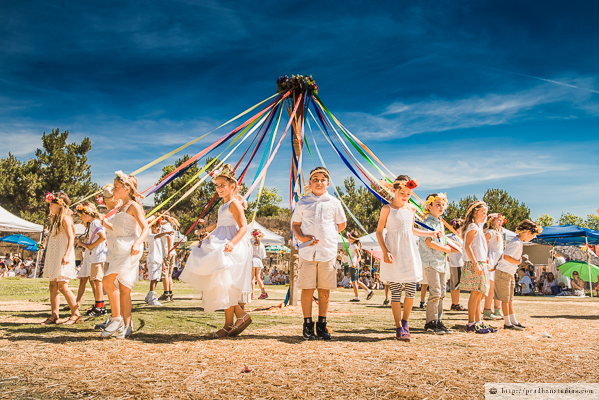The annual class play is an important spring tradition at Journey School. It is also a key element of our educational program. As a Journey School Teacher eloquently explained several years ago:
“Preparation for a class play begins long before the day it is first introduced to the students. The curriculum of the year, the children’s individual needs, and their developmental readiness must all be observed and brought into consideration early in the process. The various stories, subjects, and themes from the course of the year are weaved together into the play experience. The play is then tailored, whether borrowed or actually written by the class teacher, to meet all desired goals. The goals may be woven from social lessons, goals in speech, singing, or the many other possible benefits from performing a role in front of one’s peers.”
Each student performs in the play and roles are often chosen to support individual student needs and particular social dynamics. Through the creative process, the class learns to work together and the productions expand from small skits in the younger grades to polished performances by 8th Grade—such as an engaging historical reenactment or Shakespearean play.
Ideally, the audience will witness “high level speech and work that is cultivated; as well as how nourishing the class play is for each child. Both individually and in unison, the class learns to work together in a coordinated effort to present a comprehensible and relevant story.”
In the younger grades, the class typically learns their lines together, “one stanza at a time over the course of several weeks.” As this process unfolds, parent volunteers or older students who have mastered handwork skills often design costumes and actual sets.





